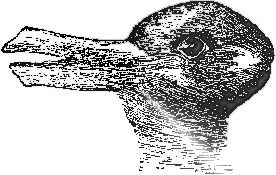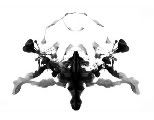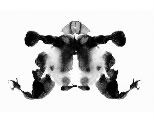April 29, 2008
I just ended my lesson and am now waiting for the next in about a few hours. Although I am quite busy with my assignments, I thought I could spend some time blogging here before the month ends. Anyway, things are still going well for me, and I think would be able to cope with the busy schedule ahead this month and the next. That said, I haven't been sleeping enough because there is, as usual, many things on my mind lately - assignments, emotional stuff, future career, and relationships. Indeed, there is so much to do in just one day and I often complain that 24 hours isn't enough for a busy man like me. I need at least 72 hours a day! It is also hard for me to balance all of these commitments at one go. To do so is to do the impossible.
I was once told by my ex-church leader that balance is the key to life. Naively, I agreed. However, since I am no longer a believer, I now seek to challenge and to propose an adverse notion against such relatively theological statement. However, I do bear the consequence of also speaking against Aristotle's perspective that moderation in principle is a virtue. For the ancient Greeks, they practice moderation, and so they claimed... but how many them? That is, a rhetoric question that is still debatable. Philosophers and thinkers alike are people who can come up with so many different virtuous ideas of how to manage life. But it takes the willing who eventually decide upon putting words into action. I was also told by my previous leaders back in church that there are some pillars in our life that requires attention and that we have to balance them all at once. The pillars and foundation of life are namely: Relationships, Work, Education, Spirituality, and Family. It all sound so philosophical at first, when I was preached about it. However, I began to realise that all these are external factors. I do not understand the reason for balancing external factors in order to fulfill the internal self. And even if we balance them all, we would be worn out at the end of the day. Well, some Christians may disagree merely giving the excuse that without God, one would not feel charged up or energised enough to face the day. Well, if that is your belief, then so be it... because the fact one isn't feeling charged up is because he or she hasn't develop a right strategy of managing his or her time.
It's all about time management. Although I do complain about not having enough to do in a single day, I enjoy every moment of my time in life, knowing that I might not live to see tomorrow. There is always a percentage of doubt that we all must give to remind ourselves that our life is precious and so valuable that if we do not cherish every moment of it, we would eventually regret about not doing so. In addition, I do not give much concern to how much I choose to commit within a particular commitment, because I know that in every thing I do, I would definitely spend slightly more time on one thing and then slightly lesser time in another. There is no such thing called moderation in life. In every aspect of it, there can only be excess. And having excess is good because it helps us prioritize our commitments and responsibilities that we are in. There is so many things that I want to commit to and also manage them equally well and giving each of them equal quality time. However, I would be doing the impossible if I were to give it a try, even for once. There is always a sense of priority reigning over my life and that there are some things I have to sacrifice in order to attain certain goal in life.
There is no balance, just as there is no equality nor justice, nor happiness, nor meaning. Everything is the product of the mind, and a deception formed by our individualistic perspectives. I call it the "veil of ignorance" in my own term. Yet, everyday, we struggle to keep surviving in this harsh reality without knowing that we are doing the impossible and pursuing the most difficult task no one has ever attained. The irrationality of determination is the fall of anyone who thinks that it is always a "must" to attain some things in life, a "have to" be it in life, a "got to" do it in order to achieve the best of what is to come. However, no one cares about any consequences. No one bothers about the journey, but everyone wants to be at the destination all at once. Sounds very impatient indeed. And Adam Khoo, who stressed that an individual has to motivate him or herself by using words such as "I must", "I have to", or "I got to"... or, "It must", "It has to", or "It got to"... etc, in order to achieve one's goal where an individual can tap into every happiness and satisfaction at the end of the day. But, there is a problem in his motivational theory - a problem that no one bothers to identify or to tackle. It is the fact that we are never happy and will never be, if we think that there is happiness in life. In fact, it's the product of your mind that speaks to your subconscious about whether or know you are truly happy. However, that knowledge that you are truly happy is enigmatic and unknown even you and even to me. No one truly knows whether they are truly happy. So the fact remains, that to motivate oneself with Khoo's theory of coercive and forceful self-communication is a flaw and a potential of raising a society into a completely irrational one. Thus, my strong critic about his strategy is that it does not work a bit.
How then should be motivate ourselves? When talking about believing in yourself, yes, everyone can do it! I can do it! It's so easy! Believing n yourself in one thing, because faith is never enough. Faith without action is equivalent to blind faith. Telling yourself that you can be something you are not (especially at that point in time) is relatively irrational, which is also equivalent to having faith in yourself. Putting faith in God is something hypothetical... thus I would recommend something solid but yet, hard to do - Just do it with mental readiness, taking into consideration of the consequences, and be prepared for the worst.
About seeking to balance commitments in life, it is absurd. Because all it takes is knowing what to prioritize. Nothing is equally important because everything in your life is unorganised, including mine. It takes us to manage and to be responsible, because at the end of the day, our freedom of choice allows us to take responsibility for our actions and for our lives.
April 26, 2008
It has been quite a long period of time since I was away from the blogging scene due to my busy schedules and all. But, now that I am feeling emo enough to write, this is the entry that is to be posted...
Today's topic is about happiness. The definition of happiness. For many people, the question of "What is Happiness" has always been on their minds. For some, it could be due to the loss of something precious to them, therefore, they would ask themselves this question. For some, it could be due to the life of constant stress and rat-race, therefore, at the end of the day, they would think to themselves what the hell is happiness all about. For others, or rather the minority, would question the definition of happiness just because they are curious about life itself. To them, they seem to have experienced both joy and sadness of this world, and often, are brave enough to ask such thoughtfully and emotionally provoking question. In fact, it is rather courageous, because for these individuals who choose to face such hard cold fact of life is something we should take our hats off to.
I don't know what happiness is, even now. Honestly, the times when I thought I was happy just doesn't keep up. The times I felt I was happy was just a moment of pleasure. The times I dreamt I was happy doesn't exist in reality. The times I knew I was happy, perhaps.. is impossible. Why is it impossible to know that one is happy? Happiness is not an expression; it is not a feeling.... but it is a state of mind. Happiness, in fact, has been defined by many throughout history. Epicurus, a Greek philosopher, was one famous for his definitions of happiness.
According to Epicurus, the first source of happiness is having friends. He recommended that we should never have a meal alone, but rather, we should have a companion or more whenever and wherever we go. He stressed that it is important who we are eating with, rather than what we eat or drink. The second source of happiness is freedom. He recommended that we should be free and go out for vacations every now and then. Epicurus and his friends would leave Athens during certain occasions in order to avoid the materialistic and gossipy, as well as the competitive atmostphere back home. He stressed that there is happiness whenever one is self-sufficient and financially independent. Moreover, he said that we must free ourselves from the prison of everyday life and politics... life may be simple, but as long as there is freedom, there is happiness. The third source is pretty much straightforward. Epicurus noted that we should live a self-analysing life. In order to do that, one should free themselves from the noisy commercialised environment every now and then such that they could be in a quiet place to exercise self-reflection.
So in sum, what Epicurus said was that if we do not have lots of money, but we have friends, self-sufficient and a self-analysed life, then we would be happy. Conversely, if we have lots of money, but we have no friends, and not self-sufficient, and not living a self analysed life, then we would never be happy. The reason why people are not finding enough happiness is because of advertising. Advertising is seductive enough to psychologically tempt consumers into thinking that they haven't have enough. It creates materialism and distracts us from the essential ingredients of life such as friends, freedom, and an analysed life. Materialism is in fact the root of all problems and the adversary of happiness.
I would have to agree with Epicurus that materialism is a dangerous sin that leads us no where. I would like to add that there is no happiness. Since there is no meaning in life, there is no happiness as well. The reason of making meaning out of life, is our human tendency and this natural ability should be used wisely. Thus, happiness doesn't exist, except in the corners of our minds. What do I mean by this? Simple. Happiness is not conscious. It is an unconscious state of mind, a being of nothingness. Sometimes, I thought to myself, "What if everything in this world were to be taken away from me?" What if I lost my love ones, my friends, my freedom, my dignity, my job, my goals, my money.. and so on.. until I'm left with nothing at all? Well, not
everything... because I only have a life left - a naked life.
I have suffered the loss of a girlfriend whom I loved so much in the recent past. She left me without a reason. Of course, this has dealt a tremendous blow on me and even now, it seems as though it was yesterday. I have suffered the loss of some precious things in my life, and these materials include watches, bags, wallets, jackets etc. I lost them either because I was absent-minded, or they were stolen away from me. I have suffered the loss of friends who simply do not care and do not forgive. I have been through other hardships which I would not want to reveal here. I had a near death experience and that explains why I think that life is fragile but, ironically, there is nothing to be excited about.
I don't consider life to be exciting, but the process of it, is. Life has no meaning, but to live life, you need to create a meaning for yourself. I don't believe that happiness is something that you and I know. I think happiness is a subconscious level of experience that you and I will never know. If I am Job, and God takes away everything from me after bargaining with the devil to spare my life, I would have been the most terribly upset individual here on earth. If such thing could happen to Job, and if such thing could happen to me, and some others, it could well be happening to almost anyone in this planet. Therefore, I could only conclude that life's meaning is based upon how one chooses to perceive.
Happiness is not pleasure. Happiness is not being in love. Happiness is not having lots of money. Happiness is not about gaining knowledge. Happiness is not about finding inner peace. Happiness is beyond reason and comprehension; it is unconsciously mysterious. If you know what happiness is, then you probably do not know or understand what happiness is anyway. If we're happy for a reason, then there is nothing to happy at all. If we're happy because we choose to, then that goes to show that life probably sucks. How can you know that you are happy when part of you is not? How can you be happy when a part of you isn't? We are never happy because we can never find happiness. We seek, we ask, we dream, and we search high and low for happiness, but yet we can't find. Friends and love ones may disappoint or leave you, freedom is hard to find, a self-analysed life is almost impossible in this current society we live in. There are targets to meet and bosses to satisfy everyday. And even if we were to leave the city and become self-sufficient, we would definitely miss the lifestyle of where we originally came from - the urban jungle. Futhermore, we depend heavily on religion and staunch beliefs, but yet realised that we still have some things to pray for in the end. O' when can we ever be happy enough? There is no happiness except to enter into a dimension of nothingness. Naked we came.. and naked we will depart. Such, is the nothingness of life.
To those who have ears to hear, let him hear...
April 09, 2008
A friend prompted me about life and death when it comes to meaning in life after exposing myself to him about my existentialist thoughts. His question was if there's really no meaning in life, why live? Exactly, we are living in a meaningless world.
First and foremost, I proposed that there is no meaning or purpose in life and that everything exists the way it does. In fact, we humans are the sole reason that things have meanings themselves. This is because we give meaning, purpose, and value to the things around us. Our brains are capable of setting goals and achiveing targets which we desire. Our biological history has evolved from simplicity to sheer complexity. Our human tendency to perceive and create meaning for ourselves help us survive and adapt to the environment.
Take a look at the following picture:

What do you see? When I was first shown this picture, I can't seem to see anything. I tried searching for meaning in this picture and until I was told that someone saw a dalmatian, I realised I saw the whole picture of it. In that process, I seemed to be making out some pictures myself. In fact, I saw thousands of trees in a tropical forest with big roots lining up in an unstructured way. Do you see that? Some probably will, some won't. There are thousands of things you can make out of a picture like this. In actual fact, there is no such thing as a picture in this world. Picture is what we make out of it, through our experience, sensation, and perception of the things in our lives. This is therefore not a picture, just some ink splashed over the page if you think about it.
What do you see in the following picture:

Do you see a duck? Or do you see a rabbit? For some people, if it quaks like a duck and looks like a duck, it is a duck. But that is subjected to his perception of what a duck may be. In this case, there are two ways of looking at things. In actual fact, there are millions of ways to perceive our situations. I conclude, base on this picture, that it is nothing more to it than an illusion. Just basic illusion with ink on paper. Another example of seeing things and making meaning out of things is the use of the Rorscharch Inkblots.



Of course, this is a projective test used in personality and psychological testing. But just look at the variation of answers one can give to these images..
How we live our lives depends largely upon how we see it as. Our natural tendency of giving meaning to live is the reason why we are constantly desiring to live. Yes, life is without meaning itself. But would you just want to die without exploring this wonderful world with all that you have - your senses, your mind, and your heart? Indeed, we are all lucky to be alive today. Without our ancestors, we would not be here. And simply put, we would not be here if not for an ancestral decision throughout history to live and reproduce.
We are hence the stronger lots from the many who survived till this day while the rest of the bloodlines were either destroyed by natural disasters or by other men.
Another Christian reader might even ask me, "If our purpose to live is to reproduce, then what a life we are leading. It's no different from the animals."
Well, the life you are leading is none of my business. My life I'm leading is none of your business. This is not because I don't give a damn, but rather, it depends upon how you give meaning to your life. I can't give meaning to your life. I can't tell you what are the meanings, because meaning is what you give to life and out of it. We're no different from the animals because we all reproduce, care for our offsprings and relatives, as well as trying to survive in our own unique ways. The only difference is that we have our own ways of living our life. We have a powerful evolved brain that helps us adapt to our environment, and this is our saving grace and the reason why we are still here today, instead of the dinosaurs or the do-do birds.
Christians think that their purpose come from God. In fact, we are the ones giving purpose to ourselves and constantly urging our way to find our own purpose or "callings". Voices in our heads might speak to us. But all the same, it's still us that determines our own destiny. Not God. God doesn't give us purpose, because we are still the ones creating the image of God. God did not create man, but man made God in a way that God is such an almighty figure, bigger than the kings and villains of this world, omnipotent, most wise and all-knowing, capable of giving men the comfort of salvation and distributive/retributive justice, totally oblivious to the fact that reality still, has not been overwritten by such utopian creation.
Christians, in this sense, are great dreamers. They dream a lot. And it's very healthy. But anything in extreme can harm not just oneself, but many who are revolving around that individual. They ought to wake up to the universe to realise that they are not dead, but so much alive, in the mind that is. Christ is dead, and so is Abraham. David is dead. Solomon is dead. Joshua is dead. Joseph is dead. Moses is dead. Adam is dead. Everone in the bible is dead, including the disciples. The book you hold in your hand in nothing more than a history textbook filled with stories of murder, genocide, bigotry and many more... if you want to include some stories that speak of morality, sure, there are some, if you pick and choose the verses properly that is.
We all perceive things differently. It is difficult to not be prejudiced or biased against certain ideas, but anything taken to extreme is questionable. Of course, in excess we will always have. An excessive idea is still better than an extreme one. Thus I would hold to the notion that life is still meaningless despite what everyone says. It is not meaningless because you have given meaning to the things around you. Here are some of the things that mean to me:
#1. My family
#2. My girlfriend
#3. My career
#4. My education
#5 My moral values
#6. My friends
Losing all these would break my heart.
What are the things that mean something to you?
How would you feel if you lose the things that mean something to you?
Why would you feel that way?
Think about it...
What are the meanings have you given to that object which you value in your life?
Try taking away the values of that object that mean something to you. I know it's hard, but imagine taking them away and seeing that object as though there is no value in it whatsoever. And since there is no value and no meaning in that object, it would be just fine to discard it out of your life. Can you? Why not? Why can't you throw away your wife? Why can't you throw away your family or friends? Why can't you discard your values, your faith, or even your career? Are they so important to you? Indeed! They ARE important because they have meaning... according to the way you see it. Otherwise, they would be discarded long long time ago.
Meaning is given, not sought after; purpose is created, not given; but the future is the only thing we seek.
Do you get the picture now?
Do you want to cherish the things around you more?
It's time to treasure what you have, because you have already given a certain value, big or small, to the things that you think you can't live without. My girlfriend means a lot to me, and therefore, I would only hope to grow old with her only, and cherish the times we have together. What about you? If I've attached meaning to my meaningless life, would you do the same?
If you have not, it's time to give new meaning for yourself.





